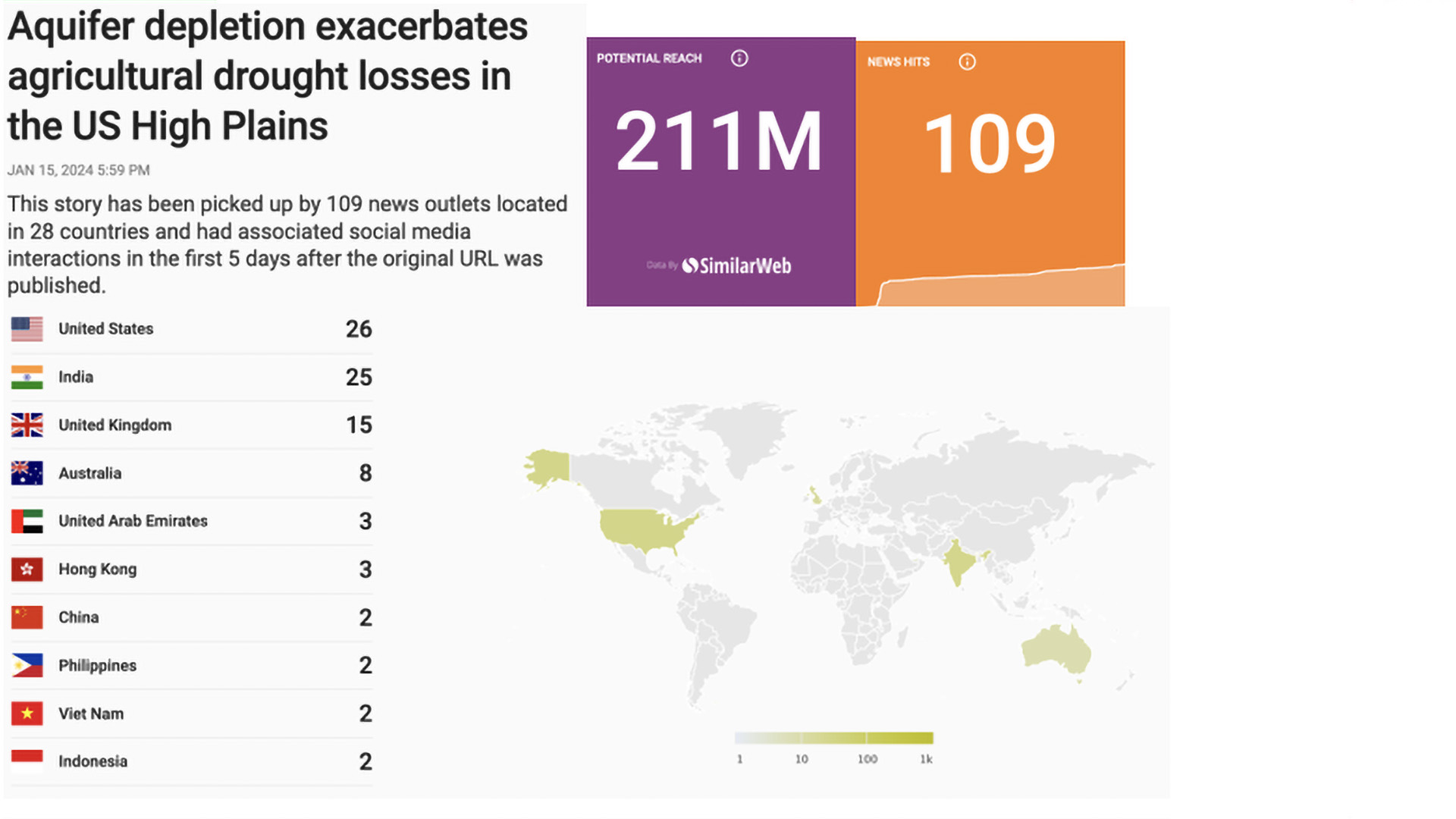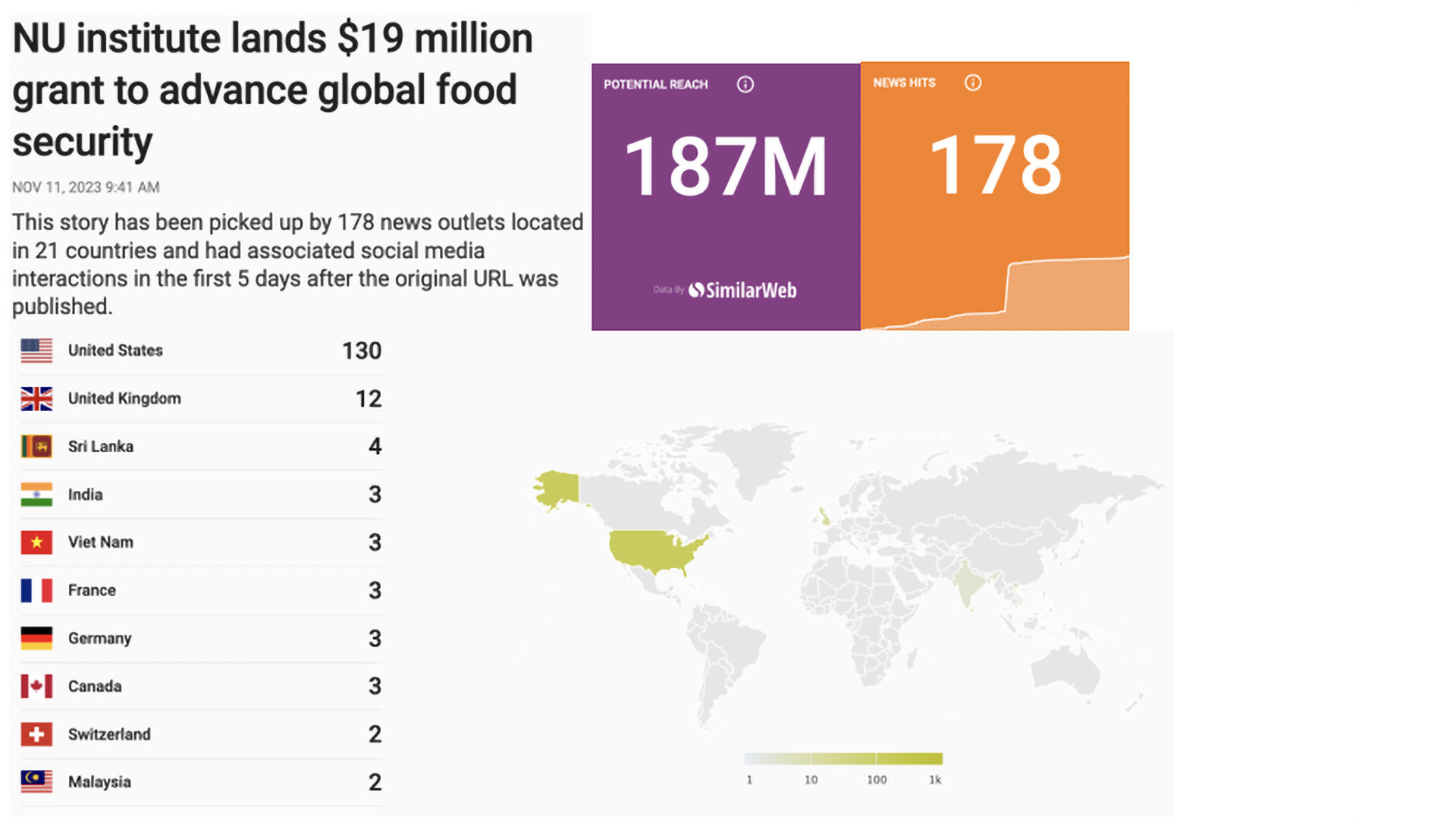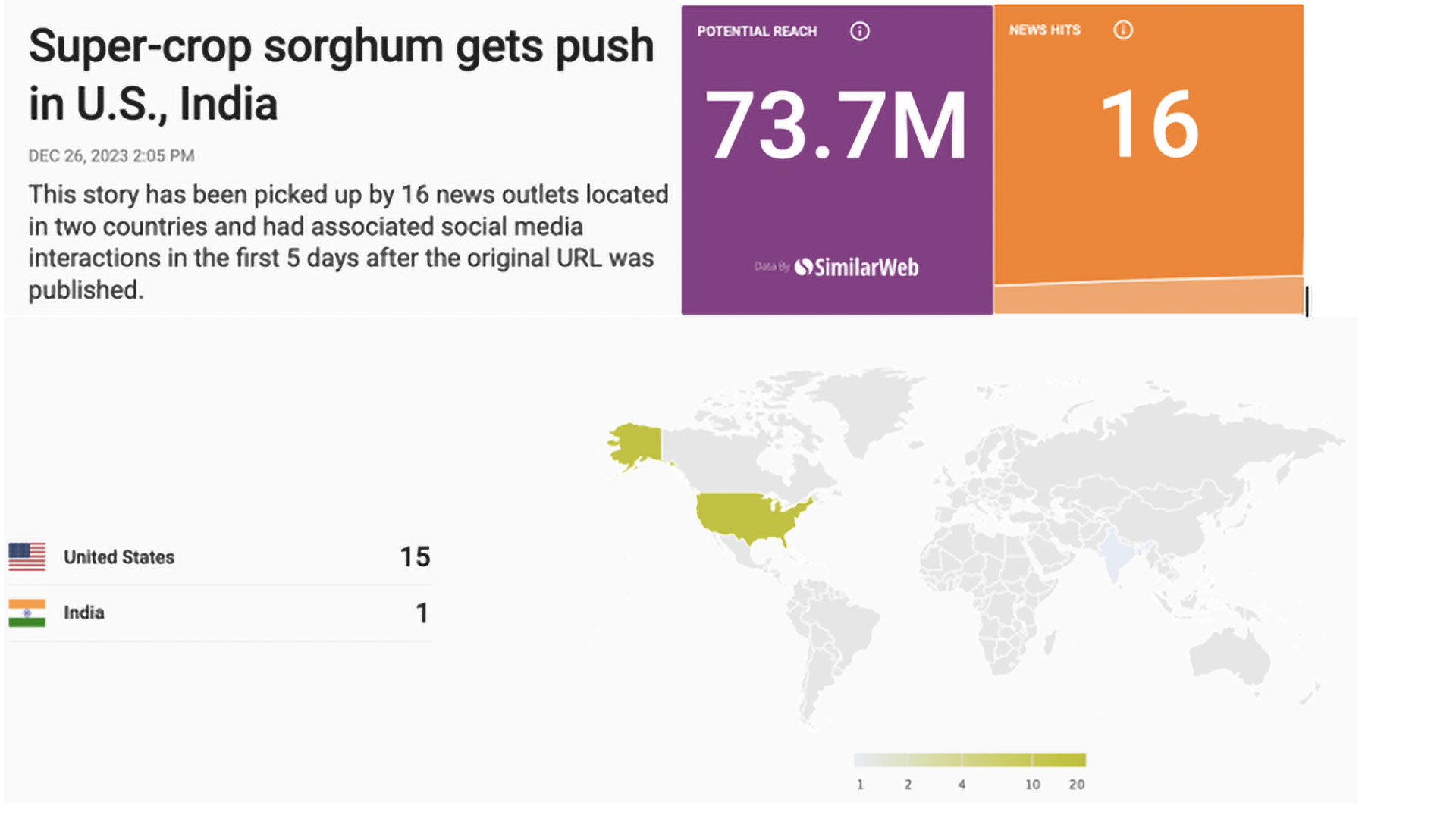Communications and Convening
The institute’s communications and convening activities play a key role in developing its brand reputation and industry authority; ensuring brand awareness and recognition; and ultimately, contributing to changes in knowledge, action or condition. The DWFI communications team is integrated with research and policy work throughout project life cycles, helping the institute facilitate its research, policy, education and development goals through strategic and integrated multichannel communication. Additionally, the communications team plays a key role in event management and development activities for the institute, including coordinating the Water for Food Global Conference. DWFI’s communication and convening activities allow the institute to engage with new partners and provide enhanced support to existing partners.
Water for Food podcast attracts listeners from 85 countries
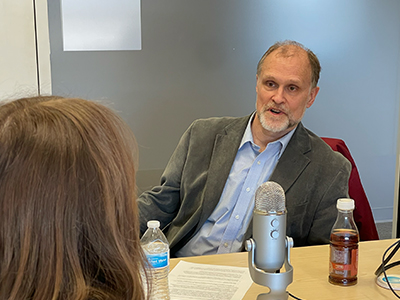
The Water for Food Podcast amplifies the voices of those making waves in the water and food space. Since its inception in August 2020, 36 episodes of the podcast have been released, which have attracted listeners from 85 countries. New episodes are released each month and the platform allows DWFI to engage in meaningful, casual conversation with its partners and share these experiences with its stakeholders. In FY2024, the podcast had more than 2,500 unique episode downloads.
Engagement rate of stories in Digest newsletter doubles
The Water for Food Digest is DWFI’s e-newsletter sent monthly to nearly 3,000 stakeholders to keep them informed on research and events. During FY2024, the DWFI communications team focused on increasing the number of stories which subscribers click to read more information. This “clickthrough rate” measures stakeholders’ interest and engagement in a particular story or topic. In FY2024, the team nearly doubled the clickthrough rate of the Digest from the previous year to 6.2%, which is also more than double the average clickthrough rate of 2.5% for the education industry.
The average open rate also increased by 5.5% to 48%. This shows that nearly half of those who receive the Digest newsletter open and browse it. The average for the education industry is a 41.5% open rate.
Additionally, the Digest continues to achieve a low bounce rate of just 1.8% (with an industry average of 8.9%). This shows that DWFI is reaching active email addresses for its audience and avoiding being caught in spam filters, which is increasingly difficult to avoid.
DWFI increases media mentions, overall reach
Coverage of DWFI research, announcements and events in various external media outlets over the past year earned the institute a reach of more than 317 million views through 438 media mentions.
A new study in Nature Water on aquifer depletion and drought, authored in part by DWFI Faculty Fellow Taro Mieno and DWFI Director of Policy Nick Brozović, was the top article and was featured in Newsweek, reaching more than 211 million people in total and was picked up by 109 news outlets.
Additional highlights of DWFI’s media exposure include:
LinkedIn audience expands by 30 percent
DWFI’s social media accounts engage audiences with the latest research, articles and updates from the institute. With a research-interested audience, DWFI has focused audience growth on LinkedIn, and seen over 30% growth in followers in FY2024.
Preparations underway for 2025 Water for Food Global Conference
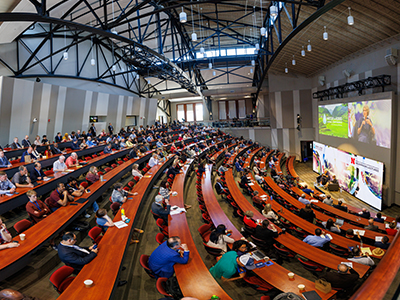
The 2025 Water for Food Global Conference will be held April 28-May 2 and bring together thought leaders working to solve one of the world’s most pressing issues — feeding a growing planet while preserving our precious natural resources. In addition to engaging educational sessions, the conference also includes field visits and research site tours so attendees can meet local growers and researchers to experience the knowledge firsthand.
The five-day conference is held in and around Lincoln, Neb., USA, which is situated in the middle of a living laboratory of agricultural and water research and atop the vast Great Plains Aquifer. The event convenes 400 leading experts and organizations from around the globe to explore research, expand technologies and share relevant knowledge. Participants will engage with academia, government agencies, policymaking groups, nonprofits, non-governmental organizations, entrepreneurs, water managers, growers, commodity boards, students and private industry partners.
Related links
Communications Resources
Top image caption
Credit: Rass | Storyblocks
COOKIE USAGE:
The University of Nebraska System uses cookies to give you the best online experience. By clicking "I Agree" and/or continuing to use this website without adjusting your browser settings, you accept the use of cookies.


